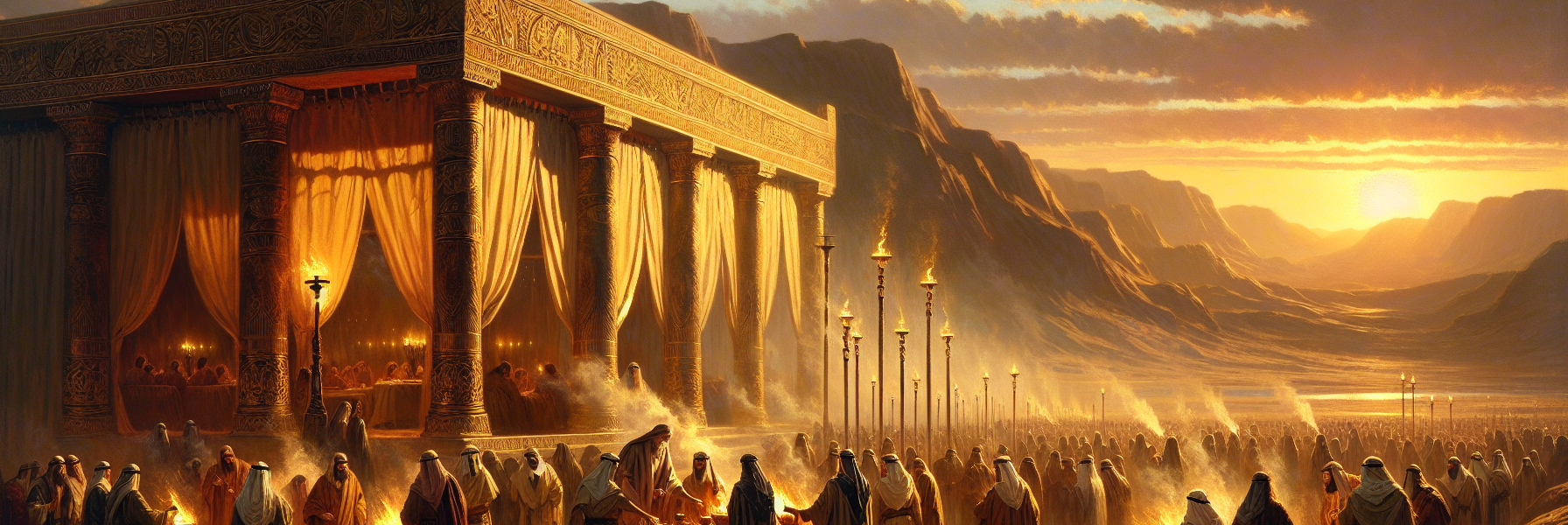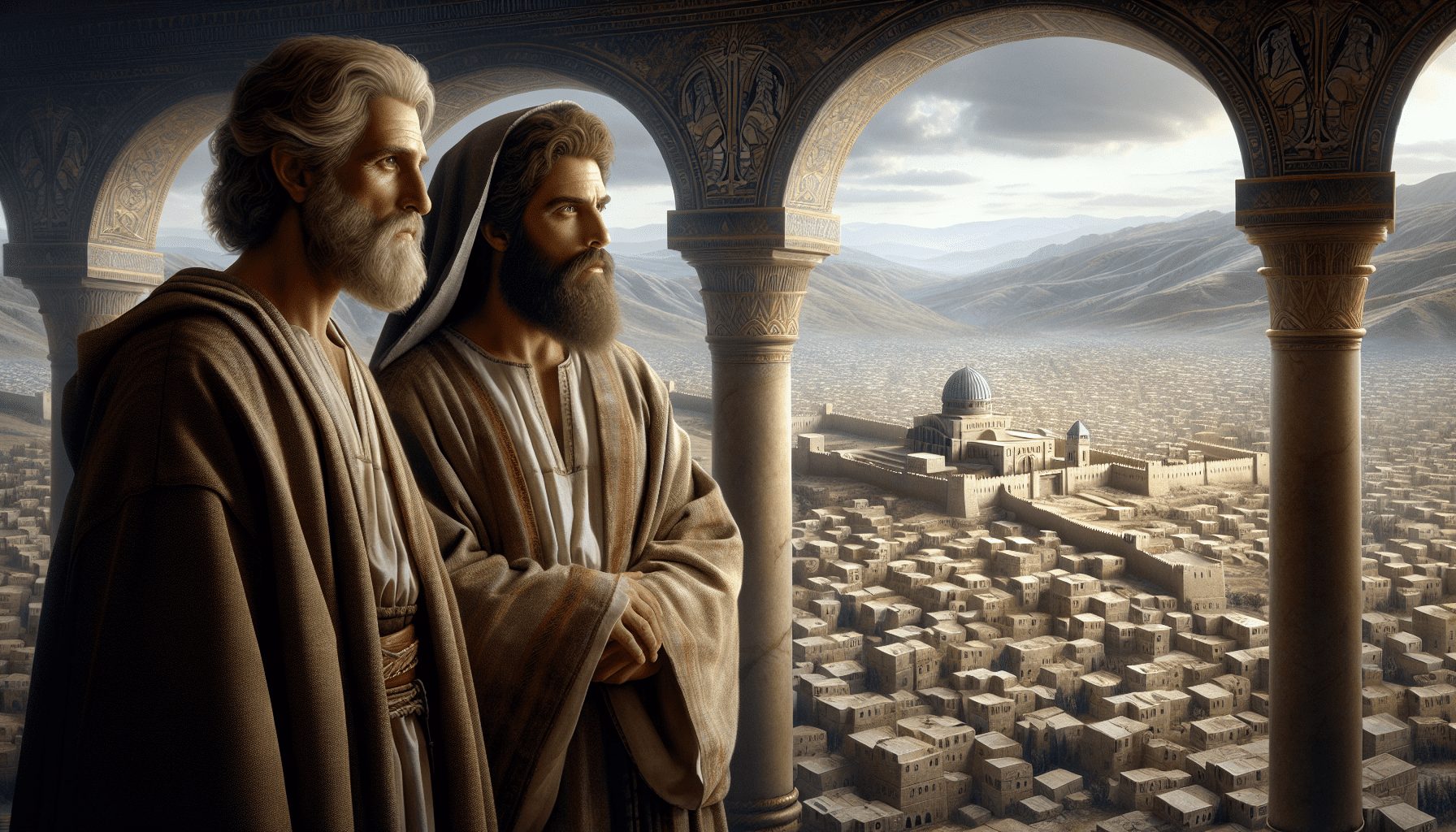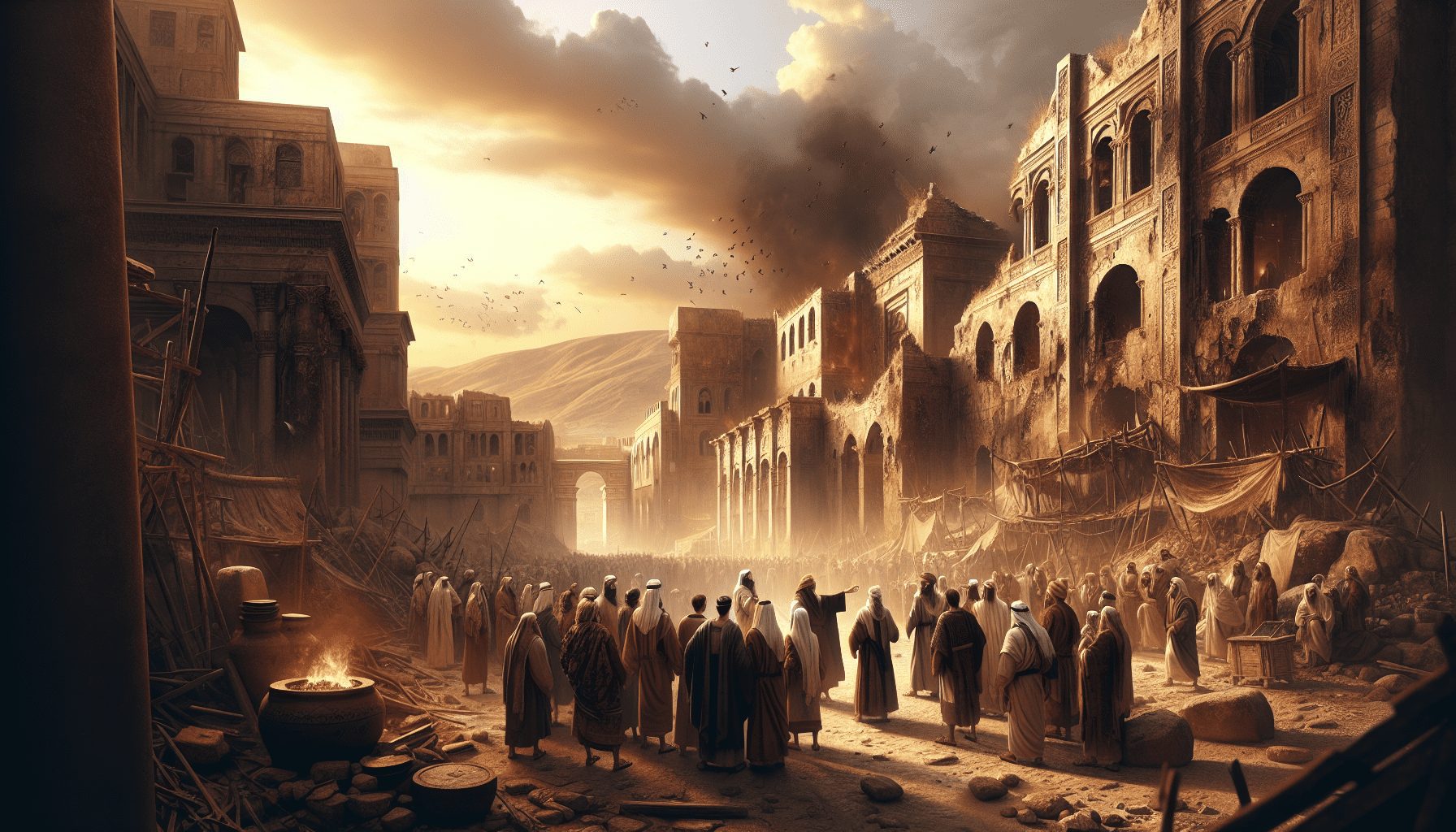**The Fire That Never Dies: A Story of Obedience and Atonement**
The morning sun cast golden rays over the tabernacle, its sacred curtains fluttering gently in the desert breeze. The scent of burning incense mingled with the crisp air as the priests moved about their duties with solemn reverence. Among them was Eleazar, son of Aaron, who had been entrusted with the sacred task of tending the altar of burnt offering. His father had often reminded him of the weight of this responsibility—**”The fire upon the altar must never go out,”** Aaron had said, his voice echoing the very words the Lord had given to Moses.
### **The Sin of Carelessness**
One evening, after the sacrifices had been offered and the people had departed, Eleazar noticed the flames on the altar burning low. Weariness tugged at his limbs, and he reasoned, *”Surely, it will last until morning. I will add wood at first light.”* With that, he retired to his tent, leaving the fire unattended.
But in the deep of night, a chilling wind swept through the camp, and by dawn, the fire had dwindled to mere embers. When Eleazar approached the altar, his heart seized with dread—**the fire had nearly gone out.** The realization struck him like a blow: he had neglected the Lord’s command.
### **The Weight of Conviction**
As the camp stirred to life, Eleazar stood frozen before the altar, the words of Leviticus 6:12-13 burning in his mind:
*”The fire on the altar must be kept burning; it must not go out. Every morning the priest is to add firewood and arrange the burnt offering on the fire…”*
His neglect was not merely oversight—it was disobedience. The perpetual flame was a symbol of God’s unending presence and the continual need for atonement. Allowing it to die was to ignore the gravity of sin and the holiness of the One they served.
Trembling, Eleazar fell to his knees, ashes clinging to his robes. **”I have sinned against the Lord,”** he whispered.
### **Restoration Through Repentance**
Before the first rays of sunlight could fully illuminate the tabernacle, Eleazar gathered fresh wood—not the dry, brittle kind, but the finest, unblemished logs, as the law required. With careful hands, he arranged them upon the altar, then took fire from the remaining embers and coaxed it back to life. As the flames leaped upward, his heart burned with repentance.
Aaron, observing from a distance, approached his son. He saw the remorse in Eleazar’s eyes and placed a hand on his shoulder. **”The Lord is merciful to those who turn back to Him,”** he said. **”But remember, the cost of neglect is great. The fire must never fade again.”**
Eleazar nodded, his resolve firm. From that day forward, he ensured that the fire was never left untended. Each morning and evening, he added wood, arranged the offerings, and watched as the smoke ascended to heaven—a pleasing aroma to the Lord.
### **The Lesson of the Altar**
Years later, when Eleazar himself became high priest, he would recount this story to the younger priests. **”The fire is more than flame and wood,”** he would say. **”It is a reminder that our God is holy, and our service to Him must be constant. Just as the fire never dies, so must our devotion never waver.”**
And so, the fire on the altar burned without ceasing, generation after generation—a testament to the enduring mercy of God and the solemn duty of those who serve Him.
**The End.**




